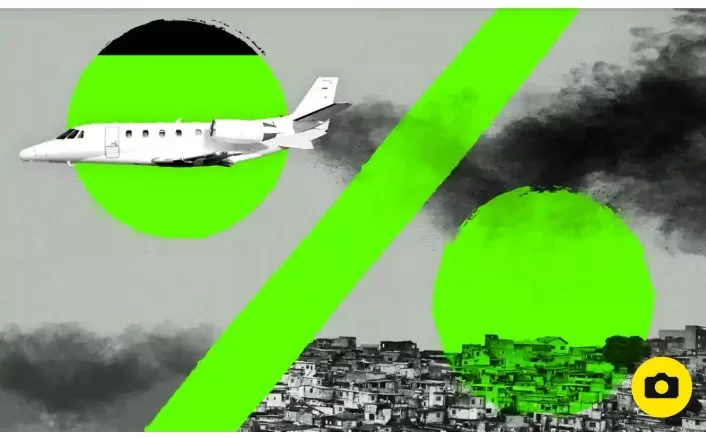In a groundbreaking investigation, The Guardian, in collaboration with Oxfam and experts, delves into “The Great Carbon Divide,” revealing that the world’s wealthiest 1% generate more carbon emissions than the poorest 66%, with far-reaching implications for climate justice and global environmental efforts.
The elite 1%, consisting of billionaires, millionaires, and those earning over $140,000 annually, contributed 16% of all CO2 emissions in 2019, equating to over 5.9 billion tonnes.
Shockingly, the emissions of this privileged group could lead to over a million excess deaths due to heat-related issues, according to a “mortality cost” formula employed by entities such as the US Environmental Protection Agency.
Over the span of 1990 to 2019, the cumulative emissions of the 1% surpassed the annual harvests of EU corn, US wheat, Bangladeshi rice, and Chinese soya beans.
Vulnerable communities, marginalized ethnic groups, migrants, and women and girls bear the brunt of climate-related hardships, lacking the financial safeguards to cope with floods, droughts, heatwaves, and forest fires.
Developing countries suffer 91% of deaths attributed to extreme weather events.
Astonishingly, it would take nearly 1,500 years for someone in the bottom 99% to match the carbon output of the richest billionaires in a single year.
High-income countries, primarily in the global north, were responsible for 40% of consumption-based CO2 emissions in 2019, while low-income nations contributed a mere 0.4%.
The report highlights the growing problem of inequality within countries, noting that billionaires, predominantly white and male, are concentrated in the US and Europe, but their influence is expanding globally.
The carbon footprint of the top 0.1%, including superyachts, private jets, and extravagant lifestyles, exceeds the threshold needed to limit global warming to 1.5°C by a staggering 77 times.
The report emphasizes the political power wielded by the super-rich, influencing global emissions through ownership of media organizations, social networks, and political ties.
Oxfam advocates for substantial wealth taxes on the super-rich and windfall taxes on fossil fuel companies to address the climate crisis and reduce inequality.
A proposed 60% tax on the incomes of the wealthiest 1% could generate $6.4 trillion annually, contributing to emission reductions equivalent to the 2019 footprint of the entire UK.
Oxfam’s senior climate justice policy adviser, Chiara Liguori, declares, “The super-rich are plundering and polluting the planet to the point of destruction, and it is those who can least afford it who are paying the highest price.” The urgent call for action echoes ahead of the UN Cop28 climate summit, emphasizing the critical intersection of climate and inequality crises.







